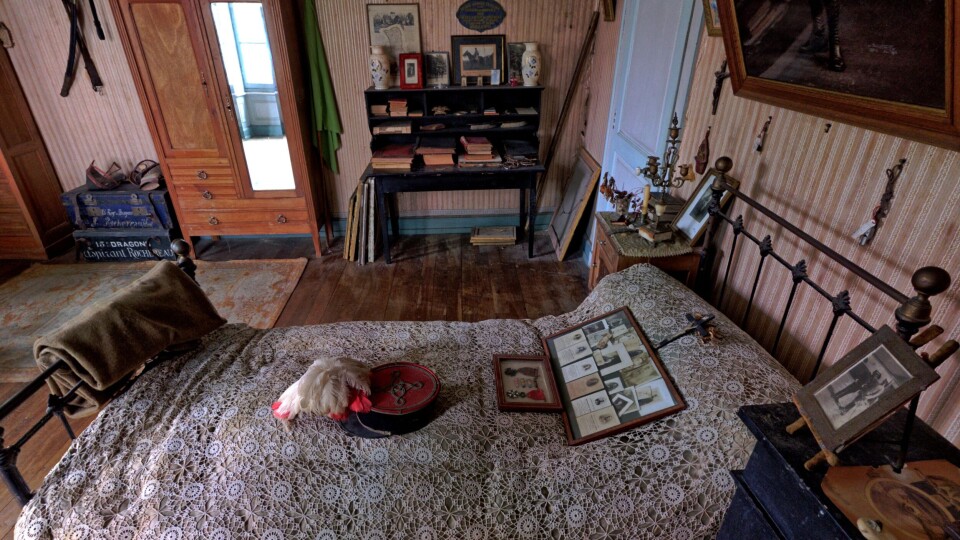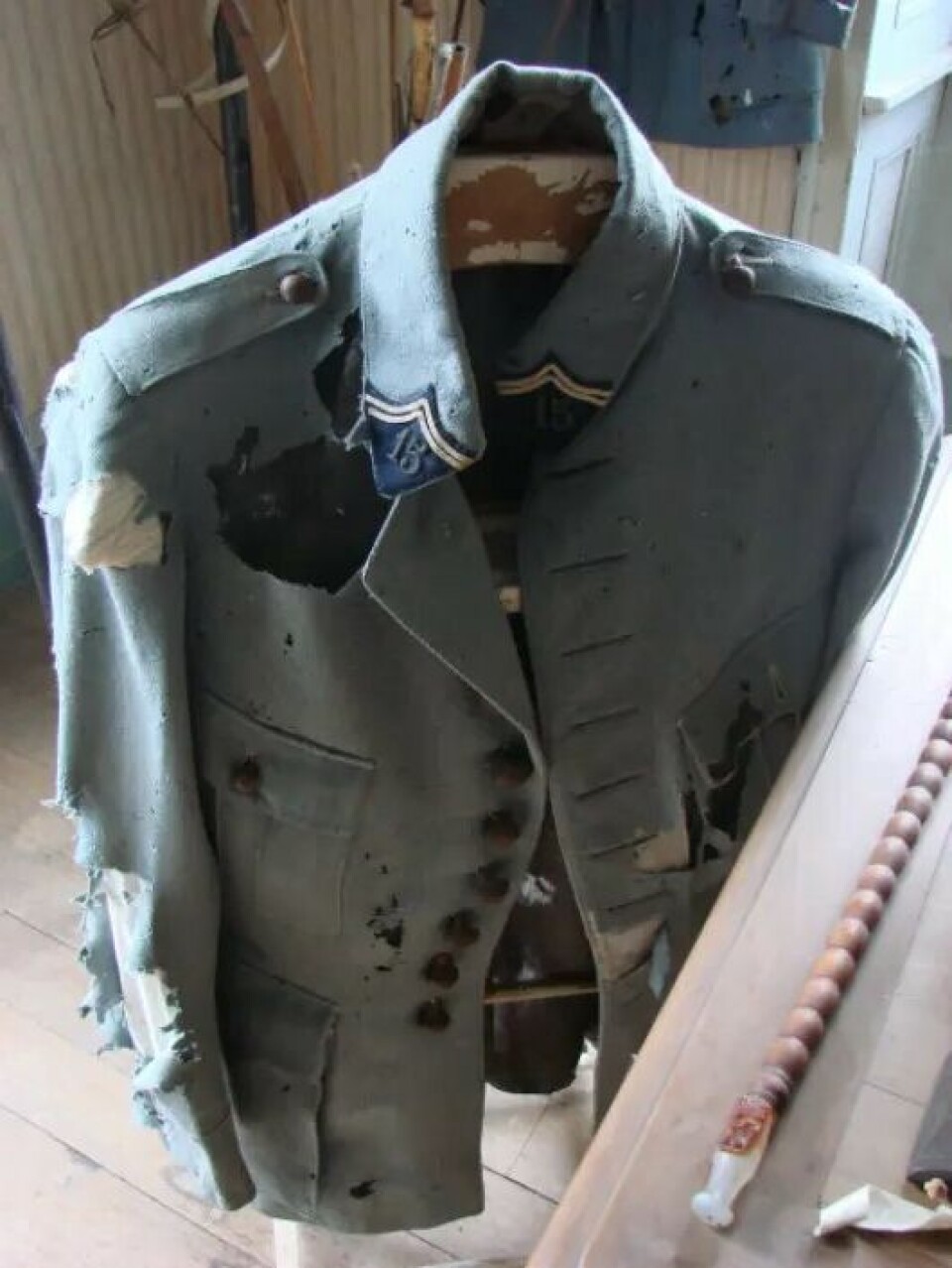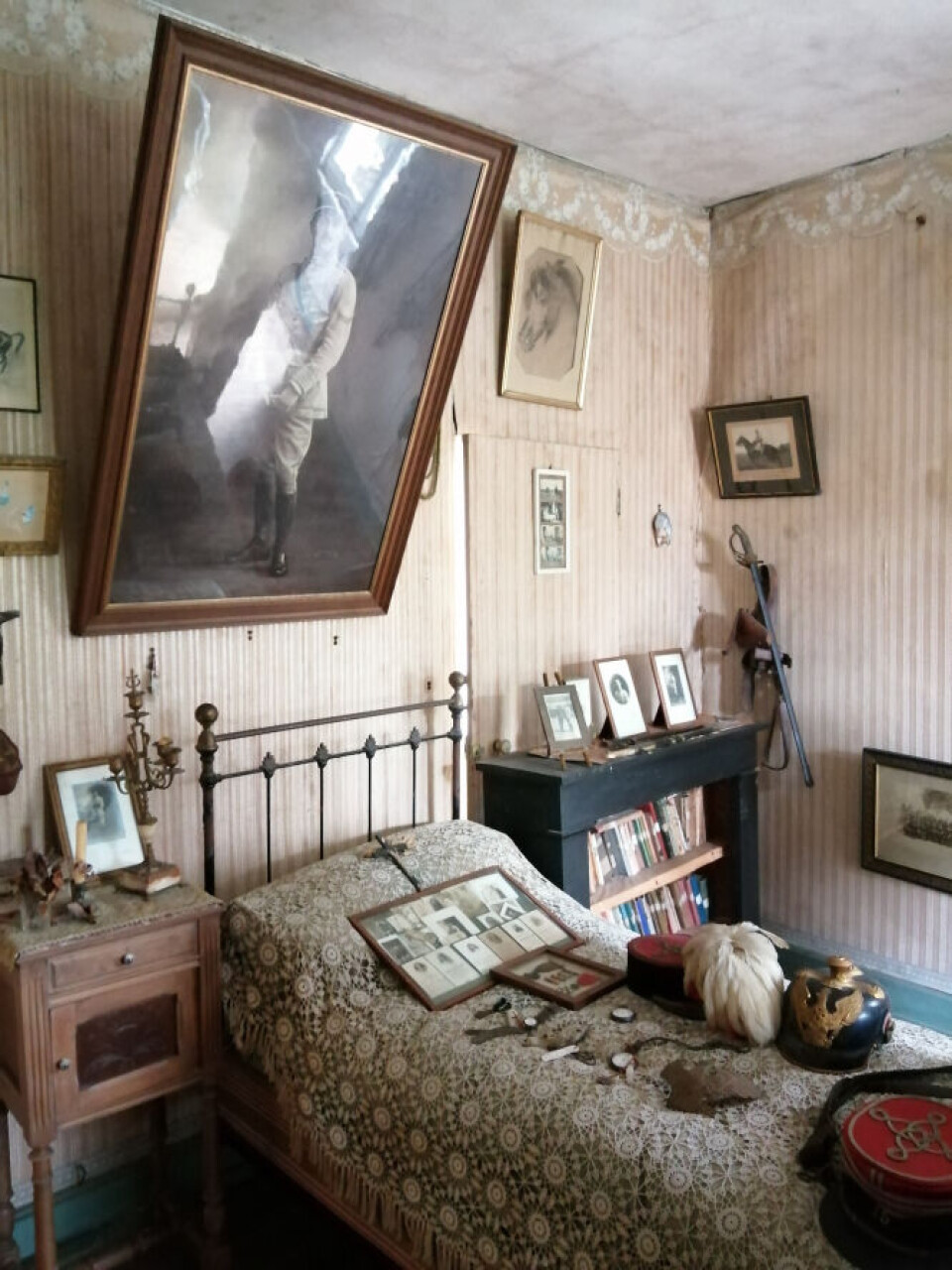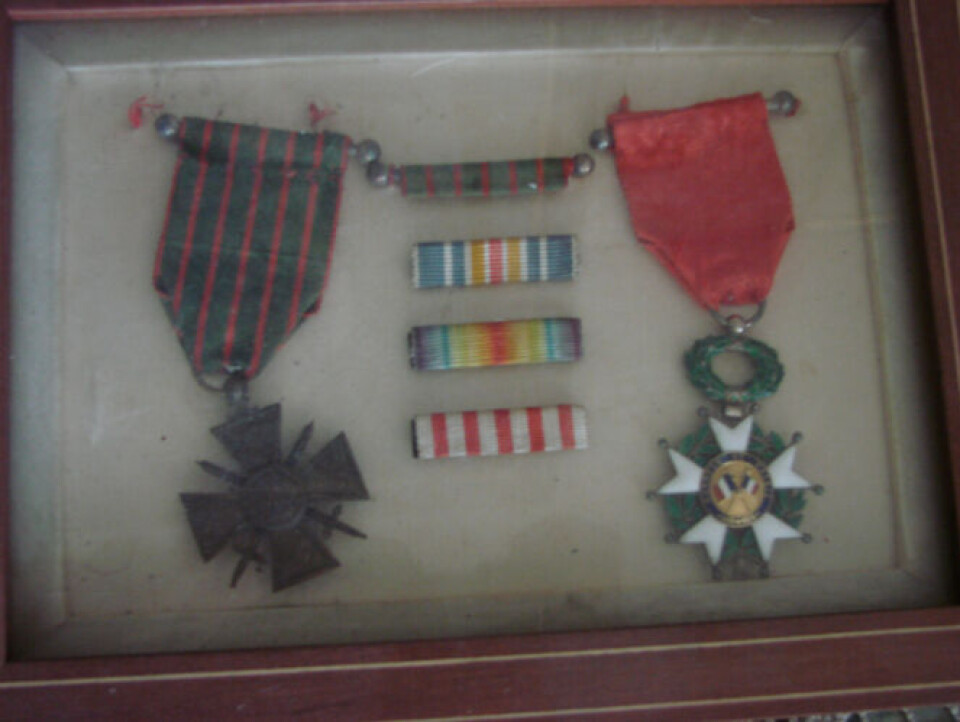-
More than 5,000 French communes use AI to identify poor rubbish sorting
Badly-sorted rubbish can cost millions so communes are turning to high-tech solutions
-
Tax on well-off retirees under consideration for 2026 budget
‘Nothing is off the table’ when it comes to finding €40 billion in savings says Labour Minister
-
Nice airport records passenger boom as tourists flock to city
Airport figures exceeded the pre-Covid record last year, with US visitors significant contributors
PHOTOS: See French WW1 soldier’s bedroom left unchanged since 1918
After the poilu was killed in battle his parents chose to keep the room as it was on his last visit home

The grieving parents of a 21-year-old sous-lieutenant killed in 1918 kept their son’s room as it was on his last visit home – and asked in their wills that the room be left untouched for 500 years.

However after a recent sale, the new owners of the house in Bélâbre in the Indre department decided they could no longer keep the room as it was, due to extensive work being undertaken on the house and because mites had started to destroy woollen clothes.
“It is remarkable to be able to walk around the room which was frozen in time,” Michel Jouanneau, the municipal councillor charged with looking after the objects until they can be placed in a museum, where the room will be recreated.
“There is obviously a deep sense of sadness at the loss of the young man and his family’s grief, but you also get a sense of what sort of lad he was – obviously passionate about horses because of the reins, riding whip and other tack, and he also liked reading with many books there, like Hugo’s novels.”
A large candle holder is in place, because the house did not have electricity in 1918. Other personal items, like his toothpaste, pipes, tobacco tin, knives, watches and pen are also in the room, along with school books, study books and albums of family photos.

The poilu (a nickname given to French soldiers during the war) was called Hubert Rochereau, and he was trained at the Saint-Cyr officer training school. His best uniform cap with feathers, is still on his bed – along with a captured German helmet.
He was killed by a shell fragment during the battle of Mont Kemmel in Belgium on 26 April 1918.
One of the letters he had written in 1917 after he had been at the front for over a year was in the room. In it he reflected on all the dead, saying their bodies formed a barrier between France and the Barbarians.
On the day before his death he wrote a short note, assuring his parents he was well and needed nothing, that all was going well, and telling them not to worry, writing he had “unlimited confidence, God, and his star.”
His parents, who ran a small business making hats, were devastated by his death, and so kept the room as it was when he last visited.

When they died, the house was sold, and successive new owners also kept the room, apparently hardly ever going into it.
The room was publicised by the owners of the house in 2010, and became a centre of attraction during the 100 year memorial years of 2014-2018.
But then the owner died, the house was sold and the new owners of the house, a maison de maitre with garden, decided the room could not be kept because the property needs major renovation work.
“The wills of Hubert Rochereau’s parents have no legal standing in the matter, but the new owners did not want to have the items sold or separated, which is why they approached the council and asked if there was something we could do,” said Mr Jouanneau.
“By that time, woollen items, like a uniform tunic had been attacked by mites, and although the new owners had put treatments down, if nothing was done, many items in the room would not last much longer.”
The items put in storage in the mairie and specialist curators called in to treat the moth-eaten materials and woodworm in some of the furniture.
It is hoped that the room will then be recreated in a new museum, which, as well as replicating the room, will explore the impact of the war.

“There are many First World War memorials in the north and east of France, but far fewer in the rest of the country, like here in Berry, although in France nearly every commune, no matter how small saw men killed and society shaken up,” said Mr Jouanneau.
“We feel that a new memorial in the centre of France is of interest. Showing the bedroom of this young officer, brought up in the provincial bourgeois at the start of the 20th century and educated as others in the “need for revenge” after the war of 1870, can have much heritage and teaching interest.”
Related articles
French sailors’ love letters in UK reveal messages 265 years on
Remembrance Day: where to buy your poppy – or ‘bleuet’ – in France
























